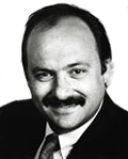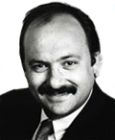Psychiatry
Hints for the Prescription of Psychotropic Drugs by Non-Psychiatrists
Where do you get Your drugs?
Posted December 4, 2011
DONT! That's my opinion in a word. Don't. Politely, please don't.
I'll make note again that 70% to 80% of psychotropic medication is prescribed by non-psychiatrist's: internists, pediatricians, gynecologists, family practitioners, dermatologists, nurse practitioners and physicians assistants. Just about everybody with a medical degree of some sort is much more ready to prescribe psych meds than to make a referral to a psychiatrist. No, not everybody, just most. Otherwise those percentages would be different.
Yes, there are abundant reasons for this phenomenon. Let's make a list of excuses:
-
a shortage of psychiatrists in the area;
-
a shortage of competent psychiatrists in the area;
-
too long a wait to see the psychiatrist;
-
insurance company restrictions and/or financial concerns;
-
prescriber does not want to offend the patient with a psychiatric referral;
-
prescriber only refers to psychiatrists the “the difficult” patients;
-
prescriber believes he/she is an expert in these matters;
-
patient does not want to see a psychiatrist;
-
(Fill in the blank)_________________________ and blah, blah, blah.
Presumptuous of me to write this? Not really. I, and my fellow psychopharmacologist's spend an inordinate number of hours every week unwinding complex, goofy, and sometimes quite dangerous poly-pharmaceutical regimens in order to make a reasonable and clear diagnosis, help the patient and determine a reasonable, prudent, and parsimonious treatment plan. Indeed my personal experience is skewed because I am a secondary and tertiary consultant in an abundant number of cases. That said, the percentages above hold true across the country as the number of people who receive prescriptions for psychotropic medication continue to escalate with most of these prescriptions provided by someone other than a psychiatrist.
Is this a turf battle? No. Is this about income? No. Is this about quality of care, early correct diagnosis, parsimonious and efficacious treatment, diminished side effects and toxicities, diminished hospitalizations, days off work, short and long-term disability, and productivity. Yes. And these phenomena spiral out of control with alacrity.
There are medical specialties for a reason. There is simply too much to know. Even a compleat physician can't know or do it all. In medical school there are mandatory rotations and electives. Everyone spends time in internal medicine, pediatrics, surgery, obstetrics and gynecology, and psychiatry. Essentially, everything else is elective. Orthopedics, infectious diseases, surgical specialties, every conceivable facet of medicine. So everyone who goes to an American medical school has had a psychiatry rotation of 6 to 8 weeks. Yes, that's correct, 6 to 8 weeks. In internship and residency some family practitioners have another rotation of 4 to 6 weeks in psychiatry but other than that only psychiatrists learn psychiatry. That's now 4 years of postgraduate study.
I did a 6 week rotation in obstetrics and gynecology at USC, in the Los Angeles County hospital. Way back then, as a third-year medical student I delivered 18 babies myself in the three-week obstetrics rotation. Yes, of course there were very experienced obstetrics nurses present as I gave anesthesia, blocks, did episiotomies, delivered babies–3 with nuchal cords–and showed them to mommy and handed them off to pediatrics. All without as much as an intern in the room. Given the frenetic volume at County Hospital I actually delivered one baby barehanded in the hallway with mom still on the gurney and one nurse in attendance with a BOA pack (born out of asepsis). We couldn't get this lady from the labor room to the delivery room in time, but that didn't matter very much because there wasn't a clean room available anyhow. I don't think the third-year medical students get to do this anymore but it was a remarkable experience.
I do a bit of CME on gynecology because of my particular interests in neuropsycho-endocrinology. It is relevant to my practice. I really don't do much CME on obstetrics. I do not meet with drug company representatives. By now they have learned not to call on me but in all my years of practice I was never detailed by rep with respect to OB/GYN medications and machinery. Do you want me to deliver your baby?
Certainly there are some quite capable internists and pediatricians who are quite adept at psychiatric diagnosis and 1st tier psychopharmacology. Similarly there are some quite capable internists and pediatricians who won't go anywhere near psych meds and insist upon psychiatric consultations. The problem is that virtually all non-psychiatrists get all of their psychopharmacology “training” from pharmaceutical representatives who meet with them for a few minutes, bring them lunch, then leave samples and brochures. Not to say that many of these capable physicians haven't done some continuing education on psychiatry and psychopharmacology but how much is enough.
This is not a hostile attack upon my colleagues. I understand the pressures that they are under to try and get a great job done in the face of too little time, reviewers, authorizers, formularies; all the various and sundry impediments to the delivery of high-quality care and good doctor-patient relationships. It's just that most of these fine physicians would not think of overreaching into any other specialty. But psychiatry, ehh, no big deal.
Again I admit my biases and the skewed population that I see. However, given the several new patients whom I see each week who come to me on pharmaceutical cocktails of 3, 4 or 7 drugs and a hodgepodge of diagnoses, often with complications such as the metabolic syndrome, 60 pound weight gain, sexual dysfunction, sleep disorders, there is pause for concern. Most of these patients, many children and adolescents are miserable and frustrated by the time they get to see me or one of my colleagues. It can take up to 2 months to detoxify someone from high-dose high potency SSRIs, too much Xanax (in my opinion any Xanax is too much Xanax), antipsychotic drugs used for sleep, behavioral control and purported mood stabilization and…
I demur when asked “why did so and so do thus and such… why didn't so-and-so know this or that.” I try to focus on the problems at hand and the safest ways to resolve them. I do ask these patients two provocative questions: “do we you want your internist, pediatrician, gynecologist, endocrinologist, et al. to operate on your eyes? The answer usually is a horrified “of course not!” I then ask, “why do you let her/him operate on your brain with powerful mind altering psychotropic drugs with a plethora of neuropsychiatric and medical side effects and complications?” The answers to this one I won't quote.




